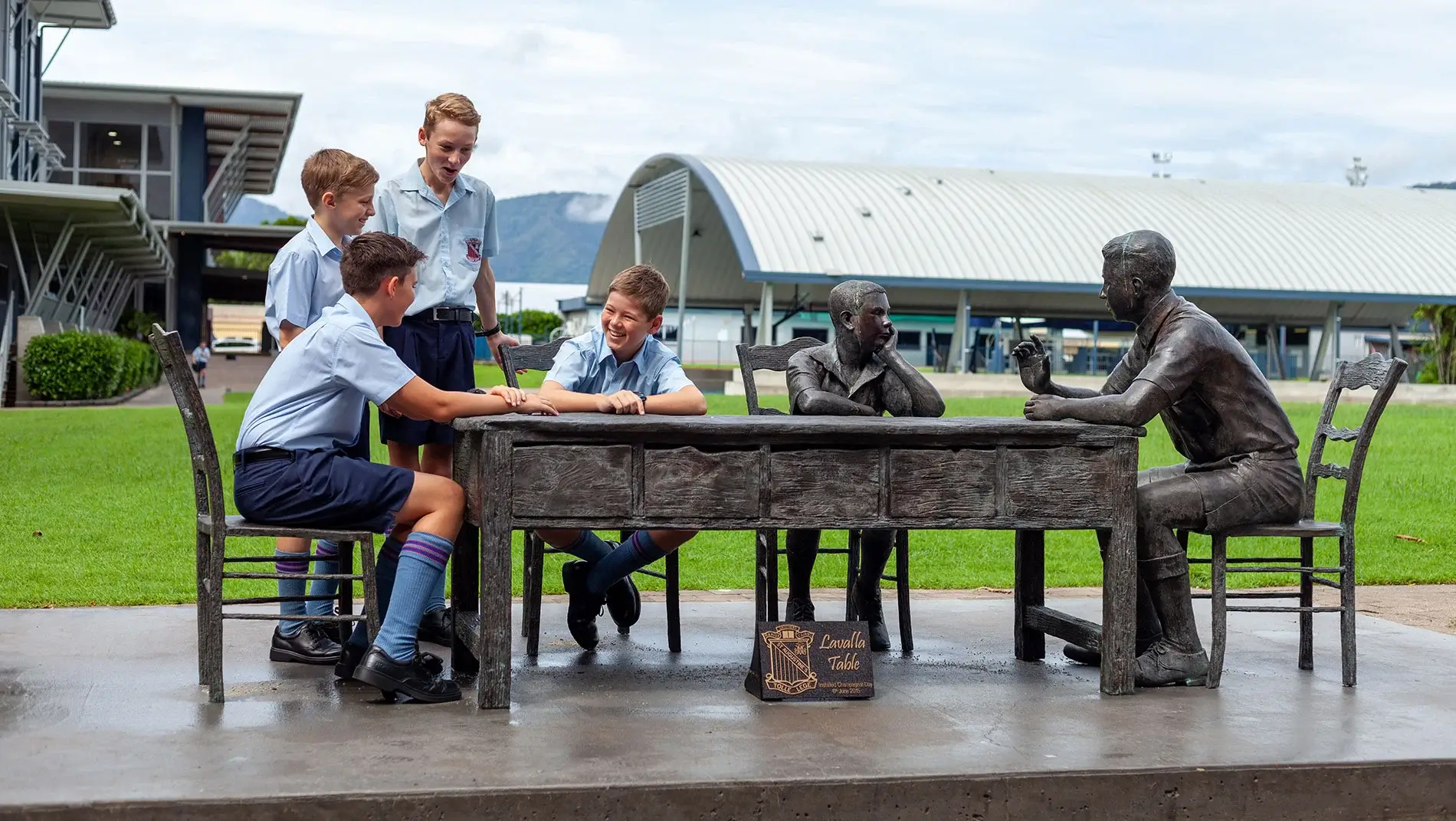Established in 1930 St Augustine’s College, Cairns provides high quality education to both local students, as well as to students from far north Queensland, regional Australian islands, Papua New Guinea and other international students.
St Augustine’s is a Catholic secondary school with over 100 employees, including teachers, cleaners, administration staff, maintenance, catering, and boarding staff.
The school’s student population includes 790 male students, 180 of whom board at the school. The school also boards girls who attend the nearby Catholic girls’ school.
Since beginning Youth Mental Health First Aid® (MHFA™) training in 2016, St Augustine’s College have trained over 70% of their staff and in 2018, St Augustine’s College became a recognised Skilled Workplace under MHFA’s Workplace Recognition Program.
It’s starts with one passionate advocate to drive change
In 2016 Roger Vallance arrived at St Augustine’s as the College Counsellor. He soon realised that mental health problems in students were increasing and as a passionate advocate of Youth Mental Health First Aid training, he thought that it would be a positive addition to the pastoral staff training schedule.
Mental Health First Aid training gains momentum
With the support of the principal, Roger attended and completed Youth MHFA training and seeing the benefits, he encouraged other school leaders to also attend.
The heads of each year level completed the Youth MHFA training and, like Roger, they saw firsthand the benefits of the training. In turn, they encouraged other staff to complete Youth MHFA training.
School staff promoted the Youth MHFA training to diocesan representatives, who agreed to fund several of the school’s psychologists to become accredited Youth MHFA Instructors. Having local Instructors with strong organisational support made accessing the training even easier, allowing for more staff to be trained in Youth MHFA.

Life since implementing MHFA
The College have implemented a number of strategies that have contributed to the success of the school’s MHFA program, including:
- Providing onsite Youth MHFA training, which conveys the importance of the training and creates school ownership of the program
- The College executive provide the finances and resource allocation for the program to be successful, including having set training days each year so that staff can either attend Youth MHFA training or maintain their accreditation
- Placing posters in every dorm and teacher’s area outlining the mental health procedures that should be followed when supporting someone in the school community with a mental health problem or crisis.

The positive impact of the training on the school community is evident with staff trained and confident to notice the signs of mental health problems in students and take the necessary actions. Early intervention from all staff members ensures that matters are addressed appropriately before they become urgent concerns. One staff member said, “In my years of teaching this is probably the best and most useful Professional Development I have done.”
The Pastoral Leadership Team have evaluated their Youth MHFA program and have found it to be associated with positive benefits, including:
- More insightful and informed interactions with distressed students
- 50% less after-hours calls for distressed boarding students compared to 2016-2018
- Staff are more invested in the pastoral care of their students
- Increased staff confidence when supporting peers and students with mental health problems
- Staff report pro-activity helping to short circuit potential problems.
These benefits translate to classroom management that is informed by modern understandings of mental health practices and smoother running classrooms.
“The [The Youth MHFA course] is high quality, effective and purposeful training.”
School Community Member
Wide spread College Inclusion of Youth MHFA training is the biggest take-away
The college executive has attended the Youth MHFA training and they encourage the training of all staff, not just teachers, which has proved to be the biggest advantage in the management of student mental health at the school. On several occasions it has been non-teaching staff who have recognised students in need.
The impact of the Youth MHFA training is clear and many schools in the diocese have followed the example set by St Augustine’s College by implementing Youth MHFA training into their school community.
What’s next?
St Augustine’s College recognises that continuing to offer Youth MHFA training to new staff and those not yet qualified, and ensuring that those trained remain accredited, is key to the program’s continued success.
Looking to the future, Augustine’s College plan to implement more specialised programs, including the yet to be launched Aboriginal and Torres Strait Islander Youth MHFA course and the Conversations about Suicide and Non-Suicidal Self-Injury courses.


